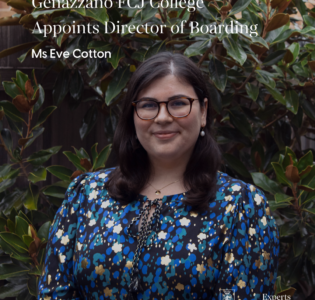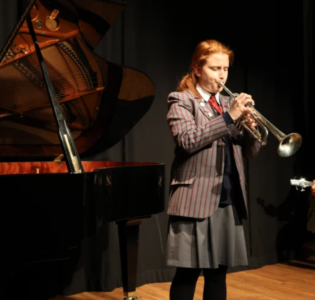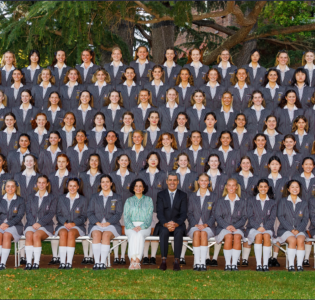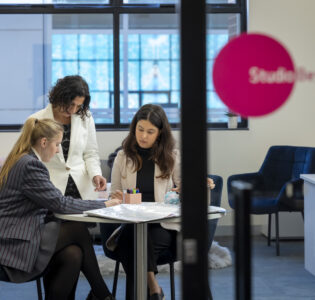Pioneering change in uncertain times
9 June 2020
Interview by Brett Henebery, 9 June 2020
The Educator Australia
The Educator speaks to principal Karen Jebb about the pioneering work the College is continuing to do in 2020, as well as some innovative new programs soon to be launched for students and staff.
TE: Congratulations on Genazzano FCJ College being named a finalist across four AEA 2020 categories – certainly a remarkable feat as schools navigate some extraordinary challenges. How has the College managed to adapt and thrive in this “new normal”?
KJ: Over the past three years, we have invested in developing an outstanding Online Learning System that supports our contemporary learning program, providing instantaneous and ongoing feedback to students and utilising engaging and innovative resources; therefore, the transition to ‘Learning at a Distance’ was relatively seamless for our students and teachers.
Through determination, community spirit and resilience, our school community made the very best of this situation. The strength of our school community has been evident over the past two months through the quality of our teaching and learning program that has been achieved without interruption and with the support of our families for their daughters ‘Learning at a Distance’.
It’s been truly inspiring to see how creative our Genazzano community has been in finding new ways to connect and stay united. We’ve delivered music lessons via Zoom, facilitated an online virtual tour of two art exhibitions at the National Gallery of Victoria, delivered daily exercise programs through the leadership and role modelling of our Sports Captains, created online networks with riding and running clubs and conducted whole school events including Genazzano Day and House Athletics Day. Our younger students have been outstanding in the way they have embraced the different activities assigned to them and uploaded their work to our Learning System for review and feedback from their teachers.
I am extremely proud of the way the Genazzano community has responded to this situation in a very cohesive way, made possible by advanced IT support systems and the willingness of staff, students and the parent community to engage in real collaboration and embrace creative opportunities to ensure the best possible student learning.
TE: When we last spoke, you explained how the College has been leveraging the latest in neuroscience for impact. In your view, what have been the most exciting developments at the College in teaching and learning since then?
KJ: We are excited to extend further learning opportunities to students in promoting metacognition and a real understanding of ‘how the brain learns’. In 2020 we will introduce a new Year 9 course with a focus on research study in sports psychology and self-efficacy and, at Year 10, we will introduce an individual learning profiler. We are also excited to have launched a student self-development program called GEN-i-US to foster growth, new experiences and skill development in a broad range of areas at Year 10.
In March, students led a community forum online to promote education about neurodiversity and we have launched a global competition for students ‘Explain the Brain, 2020: Neurodiversity’ in partnership with Education Perfect. We will soon be opening our new hub for brain science, technology and learning and we have a number of exciting neuro-related programs currently in development.
Through our Professional Learning program, our teacher’s expertise in their understanding of how the brain learns has become very sophisticated. Teacher research has evolved from individual projects to working in teams within or across curriculum areas, with a collective focus on chosen areas to improve student learning outcomes. In 2019, our teachers produced over 30 projects measuring their impact of evidence-based strategies.
TE: One of the categories the College has been named as a finalist in is ‘Best Professional Learning Program’. Can you tell us about some of the key strengths that underpin the College’s success in PL?
KJ: The engagement of our teachers has been extraordinary, and the genuine research they have undertaken within the classroom has made a significant impact on student-learning outcomes and engagement. Our teachers have grown in confidence and willingness to share their learning with one another and, externally, via conferences and journal articles. In partnership with the Australian College of Educators, we held a conference, ‘Science of Learning: Education with the Brain in Mind’, and invited teachers from other schools. This event showcased international and interstate expert speakers and was designed to consolidate learning and offer teachers the opportunity to share the impact of their work with other educators.
Genazzano teachers were also invited to present their work at the University of Queensland Neuroscience Symposium and to submit several articles for journal publication. Teacher feedback collected through surveys and interviews has indicated the learning is engaging and highly valuable, directly impacting teacher practice. This has translated into measurable improvements in student-learning outcomes.
The impact on student learning outcomes and the effectiveness of this work is the key factor driving the need for teachers to evaluate their practice In 2019, Genazzano’s ATAR results were the strongest in the school’s history, with a median score of 90.
TE: The College has also been named as a finalist in the ‘Best use of Technology’ category. What are some of the tools and approaches that have been particularly successful at the College?
KJ: Our Technology strategy was to inspire our students in all areas of technology. We started with younger students, introducing them to programming and coding within the mathematics curriculum. A number of co-curricular activities were offered to students of different ages to allow them to experience and create with technology. The opportunities included a club called ‘Gen Tech’ where students work with a Micro Bit, compete in STEM Games, go on virtual reality excursions and build using Minecraft for Education. Ensuring Digital Technologies was integrated in the classroom took negotiation and planning. Proposals for courses and integrated programs required revising curriculum plans, coaching staff and team-teaching to build staff confidence and support their skill development.
Student skill development and learning is reflected through teams placing first in the ‘Everybody Dance Nao’ competition, three students ranking in the top 10 and four students ranked in the top 20 of the Grok Web Design competition and 1 student shortlisted for STEM Games. We are thrilled to see the rapidly increasing popularity and interest in technology with 60+ students attending for lunchtime and on-line co-curricular activities to develop digi-tech skills.




